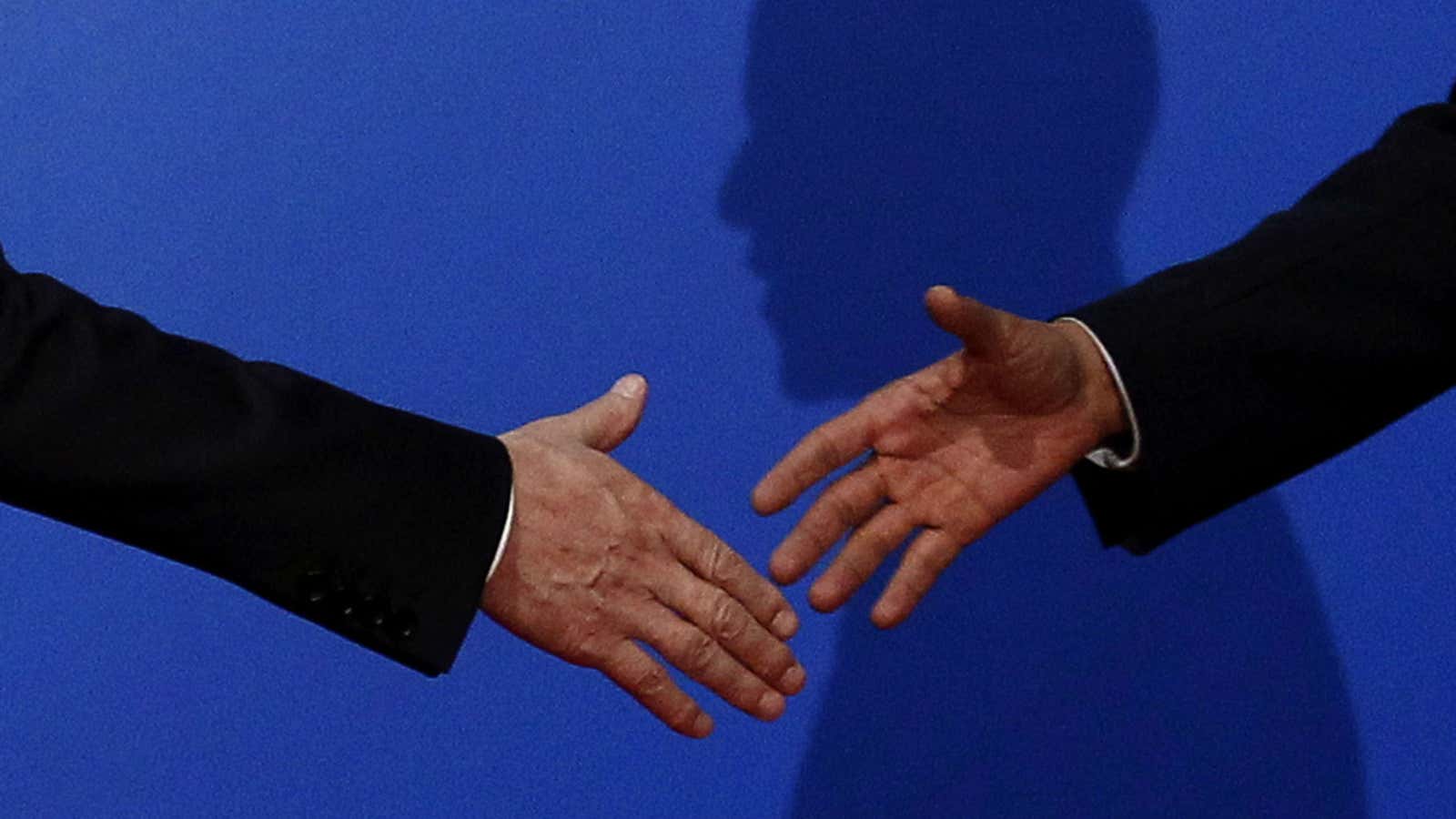If you get a weak handshake from a millennial, don’t blame him or her. It could be a generational thing.
Researchers from the Winston-Salem State University in North Carolina found that men and women under 30 have weaker grip strength than they did back in 1985. Their work was published (paywall) in the Journal of Hand Therapy.
The researchers asked almost 240 men and women under 30—most 20 to 24 years old—to exert as much force as they could on a hand dynamometer, which measures grip force in pounds. On average, men’s hand strength decreased by 20 pounds, and women’s hand strength decreased by 10 pounds.
The culprit? Probably a combination of increased technology use at home and at work, and less manual labor. ”As a society, we’re no longer agricultural or manufacturing,” Elizabeth Fain, an occupational therapist and lead author of the study, told NPR. “What we’re doing more now is technology-related, especially for millennials.”
It’s possible that looser grip strength could translate into a weaker handshake. That would be bad news for millennials, because handshakes have long been an important measure we use (paywall) to size up someone we’ve just met. But the researchers were actually looking for ways to improve the current treatments for people who have suffered hand injuries, and were not focused on improving the firmness of handshakes.
Still, if you have a weak handshake, you can always try to improve your hand strength by using one of these contraptions. Better yet, follow these basic tips on delivering a good handshake—which it turns out is more about eye contact and sensitivity to the other’s cues than it is about massive grip strength.
